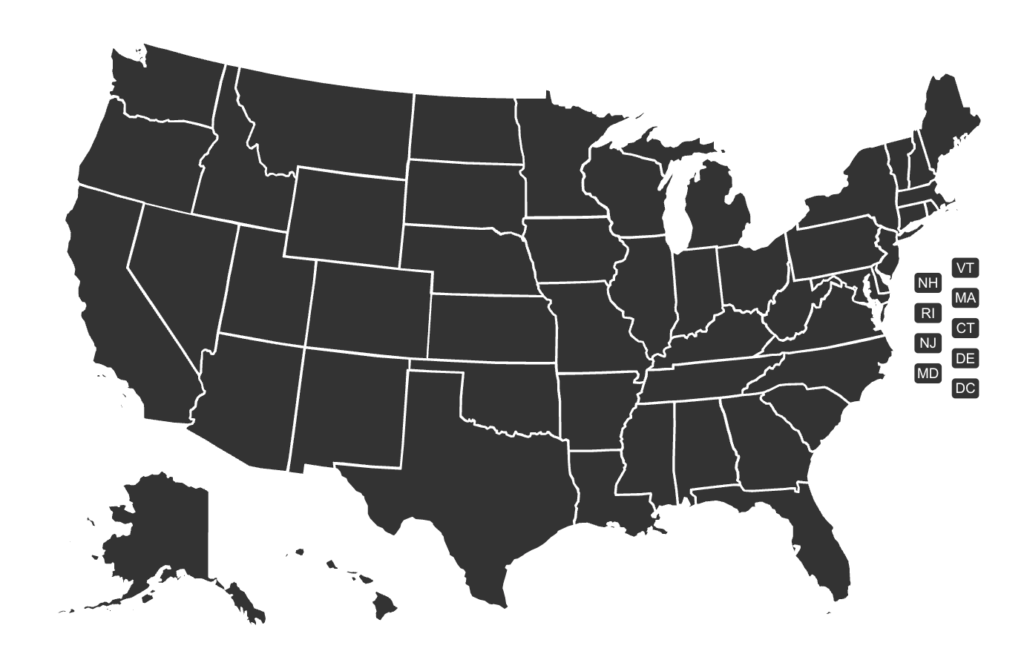Complete Guide to the Acute Care Nurse Practitioner (ACNP) Specialty
Definition: What Is an Acute Care Nurse Practitioner (ACNP)?
The Acute Care Nurse Practitioner (ACNP) is a registered nurse that has passed the NCLEX exam and has completed an accredited graduate-level specialized education program. The ACNP provides focused care to patients in a variety of healthcare settings. They work in specialty settings and departments such as oncology, hematology, neurology, or other areas where healthcare providers, including the ACNP, care for patients with chronic illnesses as well as acute or serious injuries.
An article published in Science Direct describes the evolving role of the acute care nurse practitioner, who are ‘increasingly' becoming members of critical care teams. Contributing factors to the evolving role of the ACNP include the increasing demand for intensive care treatment services and evidence that shows that acute care nurse practitioners have the ability to provide high-quality care when working as collaborative members of a critical care treatment team.
The American Association of Critical Care Nurses (AACCN) further explains that the ACNP practices in settings such as urgent care, rehabilitative care, hospice, or long-term acute care.
Acute Care Nurse Practitioner Scope of Practice
A nurse practitioner has a variety of common duties, along with some duties that are potentially unique to the specific practice setting of an ACNP. Some aspects of the acute care nurse practitioner scope of practice include:
- Ordering diagnostic tests
- Interpreting diagnostic and laboratory test results
- Making patient assessments and diagnoses
- Prescribing medications
- Initiating and managing patient treatment and care
- Patient and family education
Some areas regarding the scope of practice of the acute care nurse practitioner depend upon specific state and hospital regulations. The American Journal of Critical Care published a survey where researchers assessed whether acute care nurse practitioners were credentialed to perform invasive procedures. An estimated 43 percent of ACNPs perform invasive procedures at facilities where they have privileges and credentials to perform these procedures. Other duties of the ACNP possibly vary by state and facility regulations.
Skills & Abilities
Acute care nurse practitioners have the expertise to perform advanced nursing care for patients that are critically and acutely ill and possess specialized skills and abilities, including:
- Performing hands-on procedures such as intubation, chest tube insertion, resuscitation, and lumbar puncture
- Collaborating with physicians to perform patient management activities
- Participating in research with evidence-based practices
- Collaborating and consulting with multidisciplinary team to best optimize patient care and outcomes
- Having the skills to serve as role model to nursing staff
- Must be self-motivated and demonstrate leadership skills
- Maintaining all professional and educational requirements and qualifications
Some skills and abilities required of an acute care nurse practitioner possibly depend on the specific subspecialty chosen by the ACNP.
Acute Care Nurse Practitioner Certification & Subspecialties
After you complete your online acute care NP program, it’s vital that you become certified as an acute care nurse practitioner. This shows your potential employers that you have the clinical skills, academic knowledge, and quick recall required to succeed as an acute care nurse practitioner. Certification information is as follows:
| ACNPC-AG (Adult-Gerontology) | CPNP-AC (Pediatrics) | |
|---|---|---|
| Organization | American Association of Critical-Care Nurses | Pediatric Nursing Certification Board |
| Cost | $360 for nonmembers, $255 for AACN members | $385 |
| Number of Questions | 175 | 175 |
| Eligibility Requirements | A current, unencumbered RN license and completion of a graduate-level adult gerontology acute care nursing program | A current, unencumbered RN license and completion of a graduate-level nursing program |
Choose a career as an acute care nurse practitioner and you can practice in one of several subspecialties. The nurse that wants to further their education to become an ACNP needs to make sure that a specific school or program offers their chosen subspecialty as part of the curriculum, either through elective nursing courses or via the clinical portion of the program. Keep in mind that entering a subspecialty is completely optional.
There are several subspecialties available to the acute care nurse practitioner, such as:
- Adult-Gerontology
- Pediatrics
- Women's Health
- Cardiac Care
- Oncology
Some nurses pursue an educational program based on the specific healthcare setting where they currently work, or where they wish to work. One example is the acute care emergency nurse practitioner for nurses that intend to pursue a career working in the emergency department.
Becoming an Acute Care Nurse Practitioner
Becoming a nurse practitioner takes a lot of thought, no matter the specialty chosen. First, students must decide which degree level they wish to pursue. Options for ACNPs include:
Prospective ACNPs will also need to become licensed and certified, know their role as defined by their state’s level of practice authority, and much more. Nurses can begin preparing themselves for advanced acute care practice as soon as they become RNs. If you are a current nurse thinking about the acute care NP specialization, consider working in the following environments:
- Trauma ward
- Emergency room
- Ambulance or flight nursing
- Urgent care
- Hospice
- Home health
Helping to care for patients with critical illnesses and injuries in these settings will give nurses the foundation needed to excel in their online ACNP program.

- Alabama
- Alaska
- Arizona
- Arkansas
- California
- Colorado
- Connecticut
- Delaware
- Washington, DC
- Florida
- Georgia
- Hawaii
- Idaho
- Illinois
- Indiana
- Iowa
- Kansas
- Kentucky
- Louisiana
- Maine
- Maryland
- Massachusetts
- Michigan
- Minnesota
- Mississippi
- Missouri
- Montana
- Nebraska
- Nevada
- New Hampshire
- New Jersey
- New Mexico
- New York
- North Carolina
- North Dakota
- Ohio
- Oklahoma
- Oregon
- Pennsylvania
- Rhode Island
- South Carolina
- South Dakota
- Tennessee
- Texas
- Utah
- Vermont
- Virginia
- Washington
- West Virginia
- Wisconsin
- Wyoming
Acute Care Nurse Practitioner Employment Opportunities
The Bureau of Labor Statistics (BLS) indicates that there is a bright future for nurse practitioners. The job outlook for nurse practitioners shows an expected 26 percent job growth rate through at least 2028, which is ‘much faster than average,' when compared to other occupations.
The BLS explains that while nurse practitioners perform some duties that are similar to those of a registered nurse (RN), nurse practitioners perform other tasks focused on patient-centered care, research, and possibly educational and consultation services.
Some workplace settings for acute care nurse practitioners include:
- Hospitals that serve adult patients or pediatric patients
- Emergency departments
- Intensive care units
- Ambulatory care settings
- Specialized settings such as oncology units or psychiatric care units
Acute Care Nurse Practitioner Salaries
An ACNP salary is typically higher than the salary of nurses with lesser experience or education. The BLS indicates that the 2019 median pay for nurse practitioners was $115,800 per year.
There are several factors that determine the exact salary earned by an acute care nurse practitioner. One is the source where you search for salary information. PayScale indicates that the median annual salary is $101,495 for acute care nurse practitioners. Consider the site information such as when the information was published and any factors that may influence salary.
There are several factors that possibly influence the ACNP salary, such as:
- Geographic location
- Employer
- Education
- Experience
- Subspecialty

